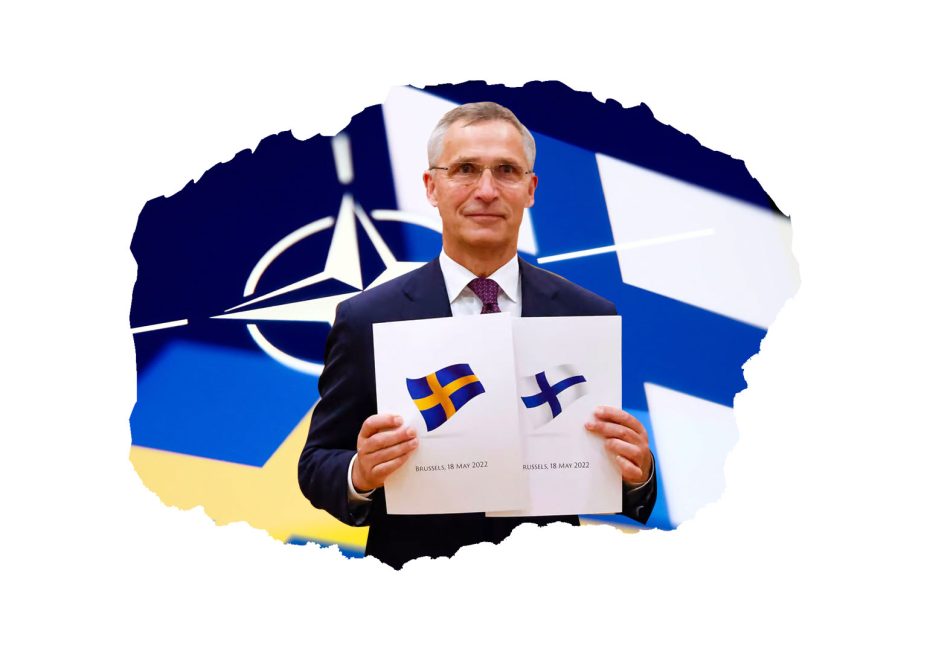On May 18, Finland and Sweden officially applied for NATO membership, kicking off an intensive diplomatic process that could lead them to join the alliance within months. While the two countries have long maintained military non-alignment positions, Russia’s unprovoked invasion of Ukraine has made the alliance significantly more appealing to both Finland and Sweden. Public opinion in both Nordic countries saw a tremendous shift as well. For instance, in the survey conducted by polling institute Novus, for the first time in history, a majority of Swedes showed their support for joining NATO, according to a poll prior to the debate on whether to abandon the country’s longstanding neutrality when it comes to military alignment.
Obtaining membership in the alliance requires unanimous agreement within the member states. The last major hurdle to the two nations’ entry to the bloc was removed when Turkey dropped its opposition on June 28. Finland and Sweden are not strangers to NATO as both have been involved in a wide range of cooperation initiatives with the alliance, sharing common values and objectives. The inclusion of these states in NATO is a win-win proposition. While it will guarantee their security, it can reinforce NATO itself and create incentives for the alliance’s eastern partners.
Security Implications for the Alliance
Finnish and Swedish membership is expected to bolster the alliance’s defence and military capabilities. The Baltic states have long been worrying that Russia could seize Finnish and Swedish islands in the Baltic Sea, particularly Gotland, and use them as bases to launch attacks on their territories. While Finland shares a land border of nearly 1340 kilometres with Russia, it will increase the length of NATO’s border with Russia twofold. Nevertheless, together the two new members would vastly reinforce the alliance’s presence eastern flank as the number of possible opponents Russia would face if it invaded a NATO member would increase. According to Article 5 of the North Atlantic Treaty, an attack on one member is an a priori attack against the whole alliance.
It is worthwhile to note that Finland’s artillery is one of the largest in Europe, while Sweden’s air force is backed by Gripen fighter jets and a navy. Sweden has already upgraded its Gotland-class submarines, which would considerably strengthen NATO’s military capacity in the Baltic Sea. This means that the alliance’s military assets could see substantial gains. In addition to the war in Ukraine, tensions between NATO and Russia escalated on June 18 when a Russian warship reportedly violated Danish territorial waters without authorisation. In January, as Russian military forces advanced into Ukraine, Sweden sent reinforcements to its military bases on the island of Gotland. In June, US and Swedish forces conducted joint military exercises as a NATO practice. NATO memberships for Sweden and Finland would secure the Baltic Sea and transform it into a ‘’NATO lake,’’ allowing the alliance to increase its military presence on islands, enhancing the region’s overall security.
Additionally, the two Nordic countries joining the partnership are also expected to strengthen NATO’s deterrence activities in the Arctic Circle. This is where Russia has long been investing heavily in military and commercial infrastructure. After their accession, the two countries will bring all Arctic states, except Russia, into NATO, allowing the alliance to pursue a more coherent regional strategy.
A New Opportunity for Aspirant Countries?
Prior to its invasion of Ukraine in early 2022, Russia heavily criticised NATO’s post-Cold War encroachment into the former Soviet bloc. It demanded binding security guarantees from them, including a permanent ban on any new members. Despite that, NATO showed the readiness to expand further, not allowing Russia to impact NATO’s “open door policy.” The inclusion of Finland and Sweden, the states that have remained neutral for decades and neighbour Russia suggests that the alliance is ready to take bolder actions to challenge the Kremlin’s aggressive foreign policy and revive itself from its rather inactive state, which French President Macron in 2019 referred to as “brain dead.’’ The revitalisation of NATO’s potential and its eastward enlargement suggests that the period of scepticism about the organisation’s eastward expansion may be over, and there can be an actual window of opportunity for aspirant countries, such as Georgia and Ukraine, to join the alliance.
















